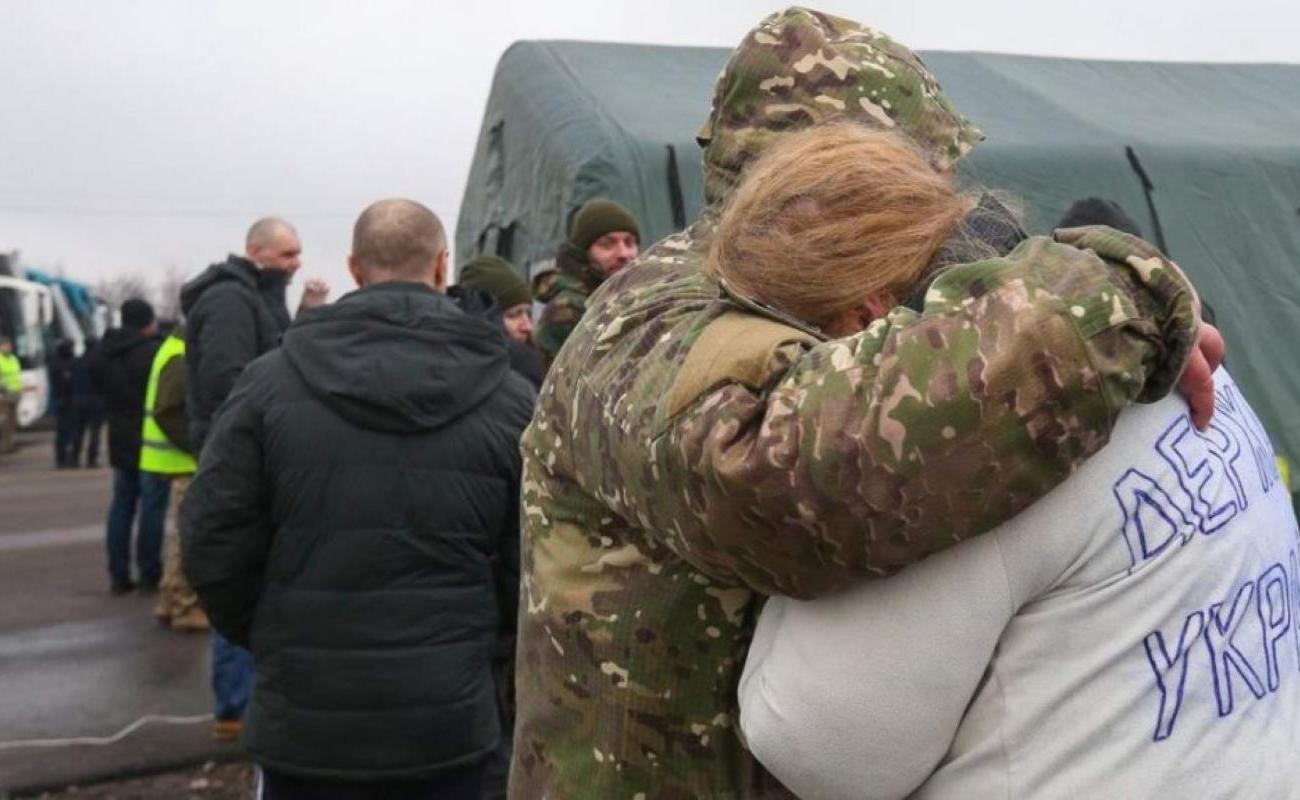"The girls were tortured with electric shocks, beaten with hammers." The freed women spoke for the first time about their captivity

Women who were released from Russian captivity spoke for the first time about how the Russians treated them.
In mid-October, a new exchange of prisoners took place between Ukraine and Russia. 108 Ukrainian women returned home to Ukraine - among them are members of the Armed Forces of Ukraine, the National Guard, the Azov Regiment, border guards and civilians. The oldest of the freed women is 62 years old, the youngest is 21 years old.
Some of the women were held captive even before the Russian invasion of Ukraine. In the evening after the exchange in Zaporizhia, they told the journalists their first impressions of the captivity.
"Even animals don't behave like this"
26-year-old Hanna O., a soldier of the 36th Marine Brigade, told correspondent Olga Kudra of the Ukrinform agency that she and others left the Ilyich metallurgical plant when the Russians began bombing it. He says she would have died if she hadn't surrendered.
"They treated us like animals. I'll tell you more: animals don't behave like that either. They beat the girls, tortured them with electric current, beat them with hammers, that's the easiest. They hanged me. I'm not talking about the food at all, because it was sour. They don't even feed the dogs like that," he recalls his imprisonment in a statement to the agency.
"Those who had tattoos... they wanted to cut off our hands, cut off our tattoos, they poured boiling water on us just because you exist, because you are in the marines, because you speak Ukrainian," says Hana.
She says that "the dream that we will return home" helped her endure. Hanna did not know that she would be exchanged. The Russians told the women that it might not happen at all. The girls realized that they were returning home only after arriving in Simferopol.
When the girls started to cry, says Hana, some guy told them about the exchange, and then they heard the Ukrainian language.
"They called me on Alice's birthday"
Among those dismissed is the mother of four-year-old Alisa, the military doctor of the "Azovstal" regiment, Viktorija Obidina. On May 8, she was separated from the regiment as they were leaving the factory. V The "Ukrinform" correspondent found Viktorija on the bus and told her to call her mother.
"Mom, I was just exchanged today... Nothing was returned to us: no documents, no jewelry. Nothing at all. I love you so much, hug and kiss my daughter," was her first conversation with her mother.
Viktorija said that she worked in the military hospital in Mariupol, and then, by order of the commander, she was sent to "Azovstal".
Victoria was told that her child would be taken to an orphanage and would not be released into Ukrainian-controlled territory, but they then allowed her to write a power of attorney and be taken out. But during the filtering process in Bezimenno, the Russians found out that the woman was a military doctor and detained her. They told her that they would let her go if they didn't find anything on her. And Viktorija remained in captivity for 165 days. The woman immediately knew that Alisa was already in Zaporizhzhya, and she learned the next news in October.
"Alisa's birthday was on October 3rd and I was allowed to call my mother on the 4th," says Viktorija.
According to Viktorija, in captivity she was forced to appeal to Irina Vereschuk and ask for the return of the child, and she was also forced to give interviews to the Russian mass media.
"They told me that I could not refuse. Otherwise, they would have beaten me, but they would still record the interview. I said what they told me to say. It could not be otherwise," she told Ukrinform.
Viktorija was in Olenivka, and then she was taken to Taganrog with three civilian prisoners.
The woman says she dreams of seeing her daughter, finding a job, but now she has no idea what awaits her next in life.
Three years in captivity
Ludmila Parhomenko was also released from captivity. She spent three years and 13 days in pre-trial detention in Donetsk, as precisely calculated by her companions. Ljudmila took care of orphaned children in the occupied territory. She was accused of espionage and held in the notorious "Isolation" prison in Donetsk under Russian control.
"During all this time, she did not ask for anything for herself. She only asked to support the children from the former village boarding school in the Novoazovsk district, whom she took care of before the war and during the war", recalls her friend Lina Kuš.
In 2021, Ljudmila Parkhomenko was recognized as a laureate of the National Award for Human Rights - in absentia.
